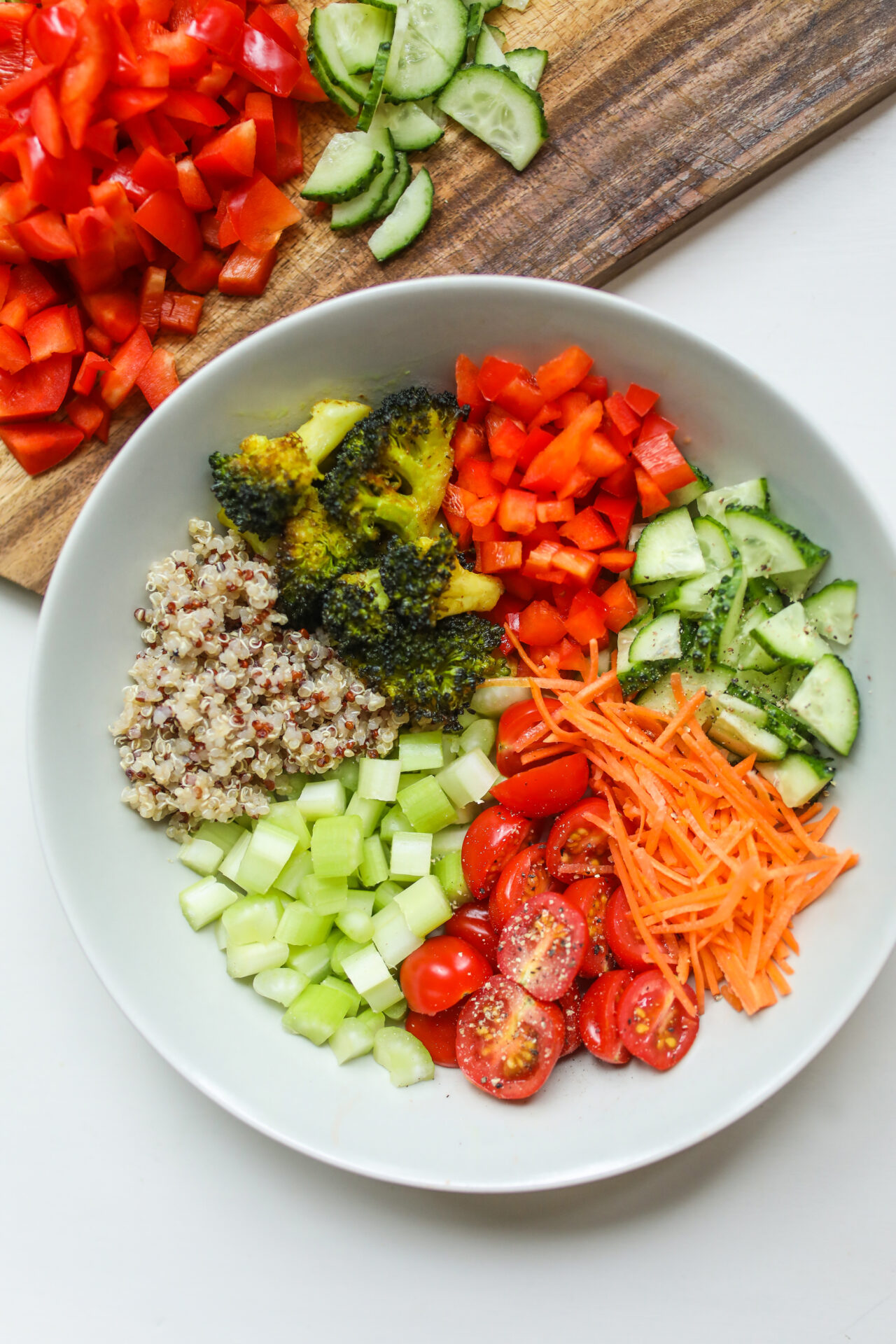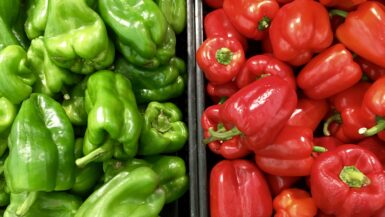In recent years, there has been a growing interest in eating a low-processed food diet. This type of diet emphasizes the consumption of whole, unprocessed foods and limits the intake of highly processed foods. While it may seem like a daunting task to completely overhaul your eating habits, the benefits of a low-processed food diet are numerous. From improved health outcomes to a more sustainable food system, this article will explore the many advantages of eating a low-processed food diet.
What is a low-processed food diet?
A low-processed food diet is a way of eating that emphasizes whole, unprocessed foods while limiting or avoiding highly processed foods. Processed foods are those that have been altered from their natural state through various methods like canning, freezing, and adding preservatives, artificial colors, and flavors. Examples of highly processed foods include sugary drinks, fast food, packaged snacks, and refined grains like white bread and pasta. On the other hand, whole, unprocessed foods are those that are in their natural state or minimally processed, such as fresh fruits and vegetables, whole grains, nuts, seeds, and lean proteins. The goal of a low-processed food diet is to consume foods that are nutrient-dense and provide the body with essential vitamins, minerals, and fiber while avoiding the negative health effects associated with highly processed foods. By adopting a low-processed food diet, you can improve your overall health and well-being while reducing your risk of chronic diseases.
The health benefits of a low-processed food diet
Adopting a low-processed food diet can have numerous health benefits, including:
1. Reduced risk of chronic diseases
Highly processed foods are often high in added sugars, unhealthy fats, and salt, which can increase the risk of chronic diseases like obesity, type 2 diabetes, and heart disease. On the other hand, whole, unprocessed foods are rich in nutrients and fiber that can help lower inflammation and reduce the risk of chronic diseases.
2. Improved digestion
Whole, unprocessed foods are often high in fiber, which can help promote healthy digestion and prevent constipation. Additionally, some processed foods like fast food and packaged snacks can disrupt the balance of healthy bacteria in the gut, which can lead to digestive issues.
3. Improved mental health
A diet high in processed foods has been linked to an increased risk of depression and anxiety. On the other hand, a diet rich in whole, unprocessed foods like fruits, vegetables, and whole grains has been associated with better mental health outcomes.
4. Increased energy levels
Highly processed foods can cause blood sugar levels to spike and then crash, leading to feelings of fatigue and sluggishness. Whole, unprocessed foods like fruits, vegetables, and whole grains provide sustained energy throughout the day.
5. Better weight management
A low-processed food diet can also help with weight management. Highly processed foods are often high in calories and low in nutrients, which can lead to overeating and weight gain. On the other hand, whole, unprocessed foods are nutrient-dense and can help you feel full and satisfied, making it easier to manage your weight.
Overall, a low-processed food diet can have numerous health benefits and help prevent chronic diseases while promoting overall well-being.
How a low-processed food diet can help with weight loss
A low-processed food diet can be an effective way to lose weight and maintain a healthy weight. Here are some ways a low-processed food diet can help with weight loss:
1. Reduced calorie intake
Highly processed foods are often high in calories and low in nutrients, which can lead to overeating and weight gain. On the other hand, whole, unprocessed foods like fruits, vegetables, and whole grains are nutrient-dense and lower in calories, making it easier to maintain a healthy weight.
2. Increased satiety
Whole, unprocessed foods are often high in fiber, which can help you feel full and satisfied, making it easier to stick to a calorie-controlled diet. Additionally, highly processed foods can cause blood sugar levels to spike and then crash, leading to feelings of hunger and overeating.
3. Reduced cravings
Highly processed foods are often high in added sugars, which can lead to cravings and overeating. By reducing your intake of processed foods, you can reduce your cravings and make it easier to stick to a healthy diet.
4. Improved metabolism
A diet high in processed foods has been linked to a slower metabolism, which can make it harder to lose weight. On the other hand, a diet rich in whole, unprocessed foods can help improve metabolism and support weight loss.
5. Better overall health
By adopting a low-processed food diet, you can improve your overall health, which can support weight loss. A healthy diet can help reduce inflammation, improve digestion, and reduce the risk of chronic diseases, all of which can contribute to a healthy weight.
In conclusion, a low-processed food diet can be an effective way to support weight loss and maintain a healthy weight. By reducing your intake of processed foods and focusing on whole, unprocessed foods, you can improve your overall health and well-being.
The impact of processed foods on the environment
The production and consumption of highly processed foods can have a significant impact on the environment. Here are some ways processed foods can affect the environment:
1. Increased greenhouse gas emissions
The production of highly processed foods often involves energy-intensive processes like packaging, transportation, and refrigeration, which can contribute to greenhouse gas emissions. Additionally, the production of processed foods often involves the use of fertilizers and pesticides, which can contribute to air and water pollution.
2. Increased waste
Packaged and processed foods often come with excess packaging, which can contribute to waste in landfills. Additionally, highly processed foods often have a shorter shelf life, which can lead to food waste.
3. Land use
The production of highly processed foods often involves the use of large amounts of land for agriculture and animal husbandry. This can contribute to deforestation, soil erosion, and other environmental issues.
4. Water use
The production of highly processed foods often involves the use of large amounts of water for irrigation and processing. This can contribute to water scarcity and other environmental issues.
5. Chemical pollution
The production of highly processed foods often involves the use of chemicals like fertilizers and pesticides, which can contribute to soil and water pollution.
In conclusion, the production and consumption of highly processed foods can have a significant impact on the environment. By reducing our intake of processed foods and choosing whole, unprocessed foods, we can help reduce our environmental impact and promote a healthier planet.
Tips for transitioning to a low-processed food diet
Transitioning to a low-processed food diet can be challenging, but with some simple tips and strategies, it can be done successfully. Here are some tips for transitioning to a low-processed food diet:
1. Start slow
Transitioning to a low-processed food diet doesn’t have to happen all at once. Start by making small changes, like swapping out processed snacks for whole fruits and vegetables or choosing whole-grain bread instead of white bread.
2. Focus on whole, unprocessed foods
When grocery shopping, focus on buying whole, unprocessed foods like fruits, vegetables, whole grains, and lean proteins. Avoid packaged and processed foods as much as possible.
3. Cook at home
Cooking at home allows you to have more control over the ingredients in your meals. Try to cook meals from scratch using whole, unprocessed ingredients.
4. Read food labels
When buying packaged foods, read the ingredient list and nutrition label to make sure you’re choosing foods that are low in added sugars, unhealthy fats, and sodium.
5. Plan ahead
Planning meals ahead of time can help ensure that you have healthy, whole food options available. Try meal prepping for the week or planning out your meals in advance.
6. Find healthy substitutes
Instead of reaching for highly processed snacks and sweets, try finding healthy substitutes like fresh fruit, nuts, or homemade snacks made with whole ingredients.
7. Don’t be too hard on yourself
Remember that transitioning to a low-processed food diet is a process, and it’s okay to slip up or make mistakes. Don’t be too hard on yourself and focus on making progress, not perfection.
In conclusion, transitioning to a low-processed food diet can be challenging, but with some simple tips and strategies, it can be done successfully. By focusing on whole, unprocessed foods, cooking at home, and planning ahead, you can make the transition to a healthier way of eating.
The economic benefits of a low-processed food diet
Adopting a low-processed food diet can have economic benefits for both individuals and society as a whole. Here are some ways a low-processed food diet can benefit the economy:
1. Reduced healthcare costs
A diet high in processed foods has been linked to an increased risk of chronic diseases like obesity, type 2 diabetes, and heart disease. By adopting a low-processed food diet and reducing the risk of these diseases, individuals can save money on healthcare costs.
2. Reduced food waste
Highly processed foods often have a shorter shelf life, which can lead to food waste. By choosing whole, unprocessed foods, individuals can reduce food waste and save money on groceries.
3. Support for local farmers
Choosing whole, unprocessed foods can help support local farmers and the local economy. By purchasing locally grown produce and other whole foods, individuals can support small businesses and reduce the carbon footprint associated with food transportation.
4. Reduced environmental impact
The production and transportation of highly processed foods can have a significant environmental impact. By reducing the consumption of processed foods and choosing whole, unprocessed foods, individuals can help reduce their carbon footprint and promote a healthier planet.
5. Reduced overall food costs
While whole, unprocessed foods may seem more expensive at first glance, they often have a longer shelf life and can be used in a variety of meals, making them more cost-effective in the long run.
In conclusion, adopting a low-processed food diet can have economic benefits for both individuals and society as a whole. By reducing healthcare costs, food waste, and environmental impact, while supporting local farmers and reducing overall food costs, a low-processed food diet can promote a healthier and more sustainable economy.
The Role of Government in Promoting a Low-Processed Food Diet
A low-processed food diet is not just a personal choice but also a matter of public health. As such, it is important for the government to take an active role in promoting this type of diet to its citizens. Here are some ways in which the government can help:
1. Implementing Policies to Reduce the Availability of Processed Foods
One way the government can promote a low-processed food diet is by implementing policies that reduce the availability of processed foods. For example, the government can impose taxes on sugary drinks and snacks, which are often highly processed and linked to obesity and other health problems. They can also restrict the marketing of unhealthy foods to children and promote the availability of fresh fruits and vegetables in schools and public places.
2. Providing Education and Resources
Another way the government can promote a low-processed food diet is by providing education and resources to its citizens. This can be done through public health campaigns, nutrition education programs, and cooking classes that teach people how to prepare healthy meals using whole foods. The government can also provide incentives for farmers to grow and sell fresh produce, making it more accessible and affordable to consumers.
3. Regulating Food Labeling and Advertising
The government can also regulate food labeling and advertising to ensure that consumers have accurate and clear information about the ingredients and nutritional value of the foods they are buying. This can help consumers make informed choices about what they eat and avoid processed foods that are high in sugar, salt, and unhealthy fats.
Overall, the government has an important role to play in promoting a low-processed food diet. By implementing policies, providing education and resources, and regulating food labeling and advertising, the government can help its citizens make healthier choices and improve public health.
The Impact of a Low-Processed Food Diet on Mental Health
While most people are aware of the physical benefits of a low-processed food diet, such as weight loss and improved heart health, many are not aware of the positive impact it can have on mental health. Here are some ways that a low-processed food diet can benefit your mental health:
1. Reduced Risk of Depression
A diet high in processed foods has been linked to an increased risk of depression. In contrast, a diet rich in whole foods, such as fruits, vegetables, and whole grains, has been associated with a lower risk of depression. This may be due to the fact that whole foods contain nutrients that are important for brain health, such as B vitamins and omega-3 fatty acids.
2. Improved Cognitive Function
Eating a diet that is high in processed foods can impair cognitive function, making it harder to concentrate, remember things, and make decisions. In contrast, a diet that is rich in whole foods can improve cognitive function, helping you to think more clearly and stay focused.
3. Better Sleep
A diet high in processed foods can disrupt your sleep patterns, making it harder to fall asleep and stay asleep. On the other hand, a diet that is rich in whole foods can improve sleep quality, helping you to feel more rested and alert during the day.
4. Reduced Anxiety and Stress
Eating a diet that is high in processed foods can increase anxiety and stress levels, while a diet that is rich in whole foods can help to reduce them. This may be due to the fact that whole foods contain nutrients that are important for stress management, such as magnesium and vitamin C.
In conclusion, a low-processed food diet can have a positive impact on mental health by reducing the risk of depression, improving cognitive function, promoting better sleep, and reducing anxiety and stress levels. By incorporating more whole foods into your diet and reducing your intake of processed foods, you can improve both your physical and mental health.
The Importance of Reading Food Labels When Following a Low-Processed Food Diet
When following a low-processed food diet, it is important to read food labels carefully to ensure that the foods you are consuming are truly whole foods and not just cleverly marketed processed foods. Here are some reasons why reading food labels is important:
1. To Identify Hidden Sugars and Unhealthy Fats
Many processed foods contain hidden sugars and unhealthy fats, which can be detrimental to your health. By reading food labels, you can identify these ingredients and avoid them. Look for foods that are low in added sugars and trans fats, and high in healthy fats, such as omega-3 fatty acids.
2. To Determine the Nutritional Value of Foods
Reading food labels can also help you determine the nutritional value of the foods you are consuming. Look for foods that are high in fiber, vitamins, and minerals, and low in calories, sodium, and saturated fats. These foods will provide your body with the nutrients it needs to function optimally, without adding unnecessary calories or harmful chemicals.
3. To Avoid Hidden Additives and Preservatives
Processed foods often contain hidden additives and preservatives, which can be harmful to your health. By reading food labels, you can avoid these ingredients and choose foods that are free from artificial colors, flavors, and preservatives. Look for foods that have a short ingredient list and contain ingredients that you recognize and can pronounce.
4. To Make Informed Choices
Finally, reading food labels can help you make informed choices about the foods you are consuming. By knowing what is in your food, you can choose foods that are truly whole foods and avoid processed foods that are marketed as healthy but are actually full of harmful ingredients. This can help you stay on track with your low-processed food diet and promote better health.
Overall, reading food labels is an important part of following a low-processed food diet. By taking the time to read labels and choose whole foods, you can improve your health and well-being.





Leave a reply